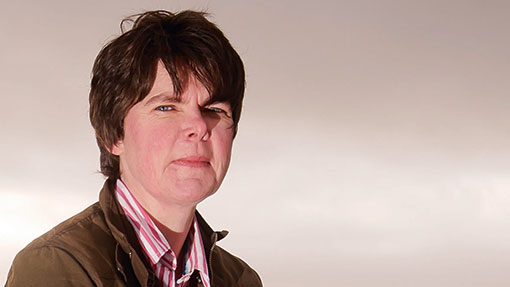Opinion: Farming education is better than silent disapproval

Pooh – it smells. So said a small boy from Tyneside, holding his nose on his way into this year’s Children’s Countryside Day, put on by Glendale Agricultural Society.
Welcome to the country, kids, this is the smell of fresh air in a damp field which has very recently been grazed by sheep.
My usual role at this event is in registration – counting some 1,500 schoolchildren in and counting them all out again. This means I witness the “before and after” reactions of the visitors. There can be some reticence on the way in, but on the way out the children are always overwhelmingly positive.
This year’s event was the 10th held by Glendale and I have probably taken part in all of them. Over the past decade, the Glendale event has hosted some 16,000 children from Northumberland and Tyneside and introduced them to the world of livestock, crops and vegetables, managing the environment, countryside sports, crafts and skills, and farming people.
It is one of the most satisfying things we do each year because we feel that in a small way we are helping children and the countryside to connect.
This year my husband Jake, on duty in the sheep pens, held a lamb for a child to stroke and the boy started asking all sorts of questions about it. Once he’d gone, his teacher told Jake that he was amazed as that particular child never spoke at all in school. On his way out, the same teacher told me that his whole class was so enthused they now all wanted to be farmers. This reaction is pleasing and not unusual.
The beauty of the Glendale event is that you get the whole class, not just the kids with the responsible parents who would take them to farm open days. They get to see a wide variety of exhibits from all types of farming, which would be difficult to replicate in a school visit to an individual farm. The event benefits from being solely focused on children, rather than being part of a bigger show aimed at adults as well. Furthermore, the involvement of so many volunteers gives a real community feel to it.
I recognise that there are similar events in many parts of the country, including the long-established Suffolk Show education day and other large-scale events in Yorkshire and Kent, but I think there is still a need for many more. It’s not just about educating children about where their food comes from – it is also about giving youngsters and teachers a more positive view of farming people. Fostering goodwill and understanding in the wider population is important.
I will never forget an episode during the foot-and-mouth crisis, when I was sent away on a job and found myself sitting in the business lounge of a hotel, having to listen to three people discussing the crisis as an icebreaker to their meeting. I was already feeling fairly fed up at having to leave Jake coping with the children as well as the farm, but then I had to listen to three loudmouths talking about how the farmers deserved it because they were all driving around in Range Rovers paid for by European subsidies.
I decided to deal with this with a look of silent disapproval. It must have been a zinger, as the chief protagonist spluttered to a halt and quickly changed the subject. However, improving understanding of farming in the general population through events such as the Children’s Countryside Day seems a much better solution.
Elizabeth Elder and her husband Jake run sheep and cattle on 235ha of hill ground on the Otterburn Firing Range in Northumberland.
